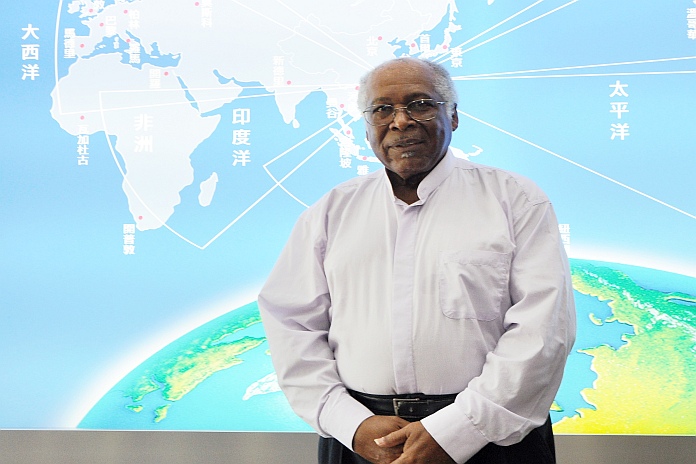By Denys Springer
I often wonder if the prime minister of Saint Lucia who advocates “colonialism has a conscience” was fed the diet of imperialism and the conscience of a colonialist in his younger days. Knowing that what is wrong is wrong and cannot be made right. The truth must be fore-ever on the throne.
For over 400 years the imperialism ‘white man’ has been our oppressor who had no intention for our liberation to the higher freedom, the truer liberty, the truer democracy. We had to liberate ourselves. I have said it before and I will say it again, I did in my years in England and the Far-East by educating myself to the hilt because I wanted to liberate myself; not only on the outer part but inwardly which would set me free. All Saint Lucians should aspire to more and to electing a black leader, a prime minister who will “puttting people first.”
The colonialism that we and our forefathers have endured is still with us even after slavery was abolished. What they did then was to leave the white elites, the hierarchy of colonial rule intact and in place. Barbados was a classic example of that. The so-called emancipation we were given proved itself a technicality, rather than a practical reality. When I look back at the greatest weapon the colonialist deployed in their subjugation was their education. This was part of their continued indoctrination.
The education we were given was not about Africa or our great men and women. There were many but it was predominantly about Britain and Europe. All our textbooks then even a few today deals with Europe. We were also left with a constitution that was not of the people per se but left by our colonial masters in a form that would still tie us down to their whims and fancies. There must be reformed to set us free.
Marcus Garvey gives support to the above when he writes “the colonial education system was a limited one but after centuries in which knowledge and learning had been denied to slaves, it was much sought after”. He went on to extol that the legacy of colonial schooling was the saturation of British values and ideals, which demanded the corresponding negation of black history, black achievement, and black self-respect”. What made me fully aware of the authenticity of his words was when he made clear that “thousands of replicated Englishmen were created in this way; schooled to perpetuate the rationales of Britain’s on-going hegemony in the Caribbean in terms of a profound admiration for the English – their culture and their colour”.
He was so right because it still exists today in the minds of those who have not liberated themselves and look up to that ‘white-skin’ – albeit, out of our two Nobel laureates from Saint Lucia, one was rather dark and respected worldwide.
Yet, those same masters in Britain even today does not have a full-fledged constitution. Theirs are made up of laws, conventions, etc., yet have saddled us with one still being honored by our house of assembly. Why? Only God knows, maybe, because it suits the intended purpose of the corrupt minds.
The word constitution is commonly used in at least two ways in the ordinary discussion of political affairs. First, it is used to describe the whole system of government the collection of rules which establish and regulate it. These rules are a legal document.
F.F. Ridley (1988) made it clear that in the American and French constitution the following applies:
- The constitution establishes or (constitutes) the system of government.
- It involves a constitution-making authority outside and above the system it creates. In modern democracies that power is attributed to the people, on whose ratification the legitimacy of the constitutional order depends.
- The constitution is superior to other law because it originates in a higher authority. This generally (but not always) leads to the possibility of judicial review of other legislation.
- It is entrenched its provision can be changed only by special procedures because it is intended to limit the power of government, including parliament.
In every democracy other than England constitutions, states the principle of the sovereignty of the people. The people themselves have usually been called on to ratify their constitutions. The authority of the people is at the base of a constitution such as ours.
Therefore, constitutional reform in Saint Lucia should be processed regardless of which government comes into power at the next election. We must put pressure and demonstrate every day if necessary, to bring about reform that advocates the will of the people. This is important to correct our past and that which once fit into the shoes and footsteps of those who advocate “colonialism has a conscience” and as proved fed the diet of imperialism and the conscience of a colonialist.
It is at times like these, I fully understand Lord Acton’s dictum “that power tends to corrupt and absolute power tends to corrupt absolutely”. Therefore, I say to the underprivileged in our midst that the day is at hand when we will have to decide whether the imperialism and the colonialist class in Saint Lucia will stay in power and feed us rum, sugar, water, sandwiches and a few dollars as a reward for votes and loyalty. Yet attempts to consummated power that effectively nullifies and constrained the populace in a so-called ‘State of Emergency’ with the support of the police force. Perhaps, this is a form of colonialism that has a conscience. Pardon the pun.
This era of the arrogant ways of the imperialist and colonialist mode of thinking must be rejected. Alongside false projects, and sod turning ceremonies with the thought “building a new Saint Lucia” to facilitate a form of petty-bourgeois, con-merchants, corrupt politicians, and so-called investors who have replaced the colonials.
Related: St Lucia must reform the colonial constitution: Part 1





